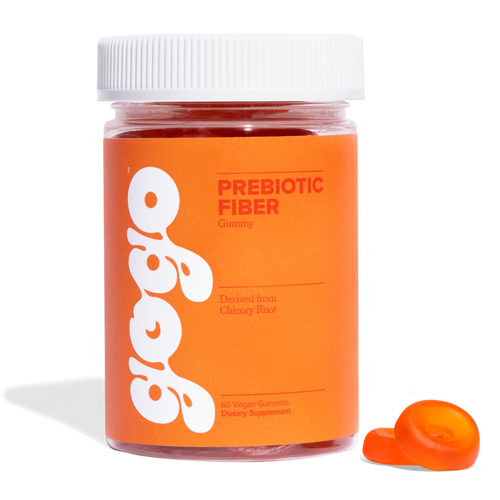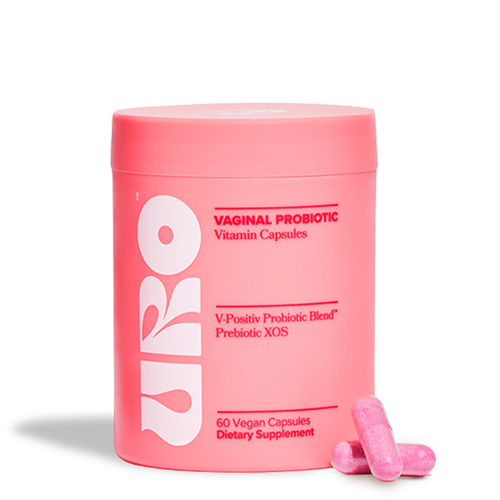If we really boil this subject down, the time poop spends in your bowel indicates whether it is “healthy” or “unhealthy.” More time spent in the bowel usually means more time spent on the toilet—i.e. constipation and hard poops that are oftentimes painful to pass. If the stool doesn’t spend enough time in your bowel, it usually bursts out of you in the form of diarrhea.
Think: Goldilocks & the Three Bears… too hard, too soft, just right.
The good news is, if your poop isn’t perfect, just a few easy lifestyle adjustments can get you there—sometimes it’s as simple as adding a fiber supplement to your diet.
What is a normal bowel movement?
Short answer? It’s not that simple. But we can certainly explore the characteristics that may indicate “normal” poop.
Size of your poop
Guess what? There’s a number. Your poop should be between four and eight inches in length.
Shape of your poop
Healthy poops look like logs. Long cylinders are what you’re going for. Any other shape may point to a digestive issue.
Consistency of your poop
Back to the Goldilocks theory—your poop should be the happy medium between firm and soft. Please don’t touch test it… you should be able to eyeball this one (or feel it coming out). Is it a log shape that wasn’t a chore to push out? Your digestive system is probably functioning efficiently.
Color of your poop
We won’t break out the crayon box, but your poop should be brown—light to dark brown. The two main colorants of your bowel movements are bile (yellow-green fluid produced by your liver and kept in your gallbladder) and bilirubin (orange-yellow byproduct of breaking down red blood cells).
If your poop isn’t a nice poopy brown, let’s explore poop colors that may need extra explanation.
If your poop is black: could be iron, could be Pepto, could be internal bleeding. Assess what you’ve ingested in the past few hours and make a primary care appointment if necessary.
If your poop is green: your food may not be spending enough time in your digestive system, or maybe you’re eating an extraordinary amount of leafy greens. Could also be artificial coloring from that novelty item you ate or drank earlier.
If your poop is red: maybe it’s beets or cranberries? Perhaps red jello or tomato juice? If not, it might be blood from your colon, in which case you should call your doctor. The important thing to acknowledge here is the lighter the red, the less alarmed you should be.
If your poop is yellow: is it also greasy and particularly nasty smelling? This might indicate that you’ve eaten too much fat. Alternatively, it might signal that you’re not absorbing nutrients the way you should be, which may be caused by food allergies, illness, or intestinal issues. If it persists, please call your doctor!
If your poop is pale or white: your body isn’t producing bile—either you have an infection or your bile duct is blocked. While it could also be a side effect of certain medications, please call your doctor to discuss next steps.
Timing of your poops
It is most normal to poop in the morning, after your body has gone to work overnight processing and digesting your intake from the day & night before. That said, there’s nothing wrong with straying from the beaten path and pooping in the afternoon or evening.
No matter when you go, the bowel movement should not take longer than a couple of minutes. If it’s taking longer than 10 minutes and you’re straining to get anything out, Honey, you are constipated.
In terms of regularity, you don’t need to poop on a daily basis to be considered regular. If you’re pooping anytime between 3 times a day and 3 times a week, that’s considered healthy and normal.
Smell of your poop
Poop smells like poop. It’s your own waste—the sh*t your body didn’t want or need in order to function well. If your poop is making you gag, however, that’s indicative of a larger issue—an illness, an intolerance, or perhaps an infection. Talk to your doctor if it’s really bad all the time, or if you’re experiencing accidental weight loss along with the foul-smelling dookies.
How to maintain healthy bowels
Did you know about 70% of your immune system is located in your digestive tract? That’s why it’s so important to keep your bowels healthy—because it directly affects your full-body health.
Make sure your diet is balanced, and high in fiber.
Apples, carrots, beans, and spinach should do the trick, but if you find it difficult to keep track of your fiber intake, a supplement like GOGO prebiotic fiber gummies contains your daily serving of fiber, and is actually enjoyable to take.
Exercise regularly.
Being active can cut down the time it takes for food to move through your large intestine, which helps relieve constipation.
Stay hydrated.
If you’re doing nothing else for your health, please just drink water throughout the day. 64 ounces a day, at the very least. It is the easiest thing you can do to clear toxins from your body, deliver nutrients to cells, regulate body temp, and just keep things functioning and moving along normally.
That about covers most commonly searched poop questions.
For an at-a-glance guide pretty enough to print, here’s FLO's official Bristol Stool Chart:











